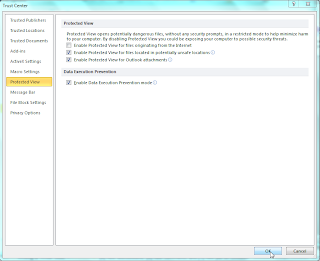When I was an undergraduate in university, one of the favourite subjects in the media was the "drug sub-culture". One of my friends used to refer to it as the "drab slob culture". And how drab and slovenly it all was.
Unfortunately, the drab slob culture has become the norm rather than the exception, and some of its adherents even govern us. Fighting this trend in my own little corner - and desperately clinging to a belief in the cyclical nature of society - I try to defend correct grammar and usage, and have an excellent example today of how just thinking about these things can save you a lot of money and hassle.
Excellent because it's topical! The IMF has just been victim of a major cyber attack:
http://nyti.ms/l8D4AV.
According to Reuters and the
BBC, a cyber security expert considers the infiltration to have been a targeted attack. The purpose of the spyware software installed on the IMF's network by this attack was apparently to give a nation state a "digital insider presence".
The New York Times adds that the attack probably took the form of "spear phishing". In this type of attack, a targeted person will receive an e-mail inviting him or her under false pretenses, to click on a link to "malware", malicious software, which is then installed on the victim's computer system.
No matter how good our spam and virus filters are, we have all received phishing e-mail. So, you know as well as I do, that these e-mails are usually written in the language of a borderline illiterate. The mistakes are frequent and enormous. Here's an example that audaciously combines English and French:
"In short, her knowledge of grace doubled, and with it her novels. I guess I'm ashamed to admit it, but I came over here
Le coeur qui crie l'amour,pour cette femme tout les jours,...
celle qui a notre coeur,et notre bonheur ...!"
Up to the end of the first clause, there is no major problem, except that one might wonder if the "grace" mentioned was actually spiritual grace. After all, how many people are particularly concerned about that today? From the behaviour of the majority of people around us, obviously not many.
After that first clause though, things really begin to deteriorate. How can a novel double? In length? If so, you'd have to say so. In sales? Then you'd have to say that the sales of her (sic) novels doubled. Naturally, the second clause of the second sentence should be, "but I
went over there". If "come" was used in the vulgar sense, it is ungrammatical to complete it with expressions, like "over here". Because this adverbial points to a destination, it suggests movement towards this destination. So, we naturally interpret the verb as being used as a verb of motion, not a sexual reaction. You may not have thought so, but even the erotic demands correct grammar.
The French is as ungrammatical as the English: we need quotation marks around "l'amour" (because it's apparently what was said), spaces after the commas, "tou
s les jours" etc.
All this is to say that a little awareness of language goes a long way. When you see an illiterate text like this, how can you think for a second that it deserves your attention? Delete the e-mail right away.
If all the staff of the IMF had complied with this simple policy without exception, the fund would have saved itself a fortune in identifying the problem, estimating the scope of the damage and repairing it. Perhaps the New York times report will prove false, and we'll find out that a language-insensitive employee did not fall victim to the temptations of a phishing scam and so, introduce the spyware into the IMF network ... that the malware got there in some other way. But if it proves to be true, I'll be laughing all the way to the bank (a bank in a country that hasn't been bailed out by the IMF).





